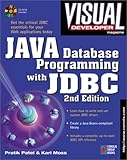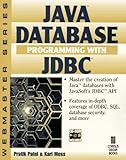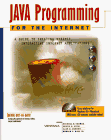Pratik Patel
Developer Advocate @ Azul Systems
Pratik Patel is a Java Champion and developer advocate at Azul Systems and has written 3 books on programming (Java, Cloud and OSS). An all around software and hardware nerd with experience in the healthcare, telecom, financial services, and startup sectors. He's also a co-organizer of the Atlanta Java User Group and North Atlanta JavaScript meetup, frequent speaker at tech events, and master builder of nachos.Presentations
JavaScript Workshop
9:00 AM MDT
Get your skills up to speed for JavaScript, the oft-misunderstood language of the web, in this full day workshop. We'll start from the very basics and learn the ins-and-outs of JavaScript. We'll look at the (many) quirks in JavaScript, and work through advanced features that make this language so powerful.
We'll talk about JavaScript design patterns, frameworks, and conventions. We'll end the day with and advanced, hands-on session, on functional programming in JavaScript. Come with an open-mind and ready to dig into code!
This workshop requires a laptop, and assumes the attendee has ZERO knowledge of JavaScript. We'll break down your bad habits, and build upon known patterns and best practices to raise your JavaScript-fu.
Functional JavaScript
8:30 AM MDT
JavaScript has a mixed heritage: OO and Functional. To date, us developers have focused on the OO side of JavaScript and not much mind-share has been given to the other, more powerful side. In this session we'll explore how to use the power of functional Javascript.
JavaScript has elements of two distinct programming languages: Self and Scheme. These two languages are very different - and some of JavaScript's weirdness is due to this mixing of very different language designs. The conceptual models are also very different between Self and Scheme - one is a prototypical object based language, while the other is a functional language. In this session, we'll discuss the elements of how the Scheme functional programming language manifest in JavaScript. We're going to explore how you can write JavaScript in a more elegant and powerful way by applying functional concepts.
Advanced JavaScript for Java Devs
10:30 AM MDT
So you think you've picked up enough JavaScript to be dangerous, but feel like the whole prototypical language thing is still a mystery. In this session, we'll go from basic JavaScript to advanced JavaScript. We'll discuss and code modular JavaScript with CommonJS. We'll look into the details of a prototype language and discuss things like parasitic inheritance. We'll also look at JavaScript libraries that will help you get the most out of JavaScript - not jQuery, but a library like UnderscoreJS and SugarJS.
This is a fast paced session meant to bring you up to speed with the latest and greatest JavaScript techniques and tools. Whether you're building client side JavaScript with HTML5 or Appcelerator Titanium, or server-side JavaScript with node.js, you'll come away with knowledge and patterns for how the pro's use JavaScript for building real apps.
JavaScript Design Patterns
1:30 PM MDT
We've come a long way down the JavaScript road. Gone are the days of 'just hack it' for the web - architecting even a small project in JavaScript can be a challenge. Thankfully, there are several frameworks to help you; the most popular currently is Backbone.js.
Before you start using a framework in JavaScript, you will want to understand the techniques expert JavaScript programmers use to build them. In this session, we'll dive into design patterns in JavaScript, and do live coding so you can see these patterns applied. Even if you're not using a framework, you can use these design patterns to make your code more maintainabile, elegant, and concise.
Building Native iOS and Android apps with JavaScript
3:15 PM MDT
Ever wish you could use your JavaScript-foo to build a NATIVE mobile app? Wish there was an open-source platform that would let you build awesome cross-platform mobile apps? Come to this session and learn about Titanium, an open-source, JavaScript based platform for creating native mobile apps.
Titanium is an open-source development tool for producing cross-platform mobile applications by Appcelerator. Using Titanium, you develop your mobile application using Javascript coded against the Titanium API's. The Titanium platform invokes their builder to take your Javascript and build a native application for iOS and Android.
This session will walk you through the details of building great apps for the Android and iOS platforms. We'll talk about Titanium development, its ecosystem, and architecture. We'll spend time looking at lots of code - we'll build an app, in fact, while we discuss and explore the framework. We'll also spend some time discussing best practices, what to expect when developing against it, and the limits of this type of development.
Mobile Development Options 2014
5:00 PM MDT
There's a bevy of options for developing mobile apps. If you're looking at cross-platform solutions, there's a multitude of options to choose from. In this session we'll explore the three basic categories for developing mobile apps: native, cross-platform-to-native, and mobile web. We'll discuss the sweet spot for each of these three approaches and the benefits and drawbacks of each. Technologies discussed include Android, iOS, HTML5/CSS3, Phonegap, Titanium, and jQuery Mobile.
There's a bevy of options for developing mobile apps. If you're looking at cross-platform solutions, there's a multitude of options to choose from. In this session we'll explore the three basic categories for developing mobile apps: native, cross-platform-to-native, and mobile web. We'll discuss the sweet spot for each of these three approaches and the benefits and drawbacks of each. Technologies discussed include Android, iOS, HTML5/CSS3, Phonegap, Titanium, and jQuery Mobile.



